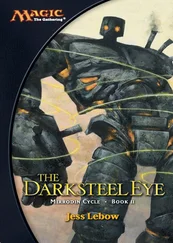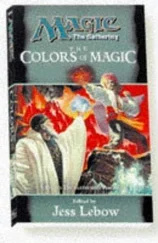“The thing about Bishir-” Assan chewed his bottom lip.
“What?” Remy asked.
“I don’t want to get my brother in trouble… he and Bishir shared a fondness… for American women. Especially Bishir. More than his family, more than anything, I think sometimes, he liked these women. Kamal said he had a name for them…”
“What?” Remy asked.
“Vines.”
“Vines?”
Assan looked embarrassed. “Tarzan, yes? You know the movies? Bishir said that a man in America could swing from vine to vine here without ever touching earth.”
“Is that where you think he is… with one of these vines?”
Assan rubbed his temple. “I remember my brother once stayed with one of Bishir’s women. In Virginia. Near Charlottesville. A divorced woman. Very wealthy. Bishir considered marrying her at one point. He would stray with other women and then come back to her. He was seeing a young woman in New York-”
“March Selios,” Remy muttered.
“Maybe,” he said. “Kamal told me that Bishir genuinely cared for this woman, but that the woman in Virginia had a great deal of money, and when he got bored he would always return to her.”
“Do you know her name?”
“Herote.” Assan spelled it. “I don’t know her first name.” Remy put his hand in his coat pocket. There was a pen right next to the pocketknife; he tried not to dwell on the significance. He pulled out the pen and wrote on his hand: “Herote. Virginia.”
The air was cold now and Assan was shaking harder. Remy put his hand on the smaller man’s shoulder. “It’s okay. You’re going to be okay.” He lifted his head to look forward through the windshield of the cabin cruiser, to see if he could spot the shoreline. Instead, bobbing three hundred feet away, he saw the cabin lights of a ship.
As the cabin cruiser slowed, Assan lifted his head and cried out when he saw what Remy was staring at: the ship they had just left. Markham was standing halfway down the rope ladder, his arm hooked in it, smiling. The other two men were leaning over the side of the boat, holding bottles of beer.
Assan slumped back to the floor and began crying.
The cabin cruiser slowed and pulled up next to the ship. Markham lowered himself the rest of the way and plopped down on the floor of the smaller boat. “How was your ride, Assan? Did you get some fresh air?”
Markham fastened another pair of plastic zip-ties on Assan’s wrists, pulling them tight and cuffing the man’s hands in front of himself. A rope was lowered from the ship and Markham looped it around the cuffs, tied it, and then tugged on the rope. Assan was jerked from the boat, his arms above him, dangling like he was being hanged.
Remy rubbed his eyes. He would have liked to be more surprised. He watched as Assan was pulled up, banging against the ship, and then finally slipped over its side onto the deck like a huge fish.
“You’re right,” the driver said to Markham. “This guy is good.” He looked at Remy with something between respect and fear. “Scary good. He had me convinced.”
“So… you get anything?” Markham asked.
Remy felt sick. He showed Markham the writing on his hand: Herote. Virginia .
“So Assan was holding out on us.” Markham bowed in front of him in worship. “I was dubious, but damn if that didn’t go just like you said it would.”
“Is he gonna be okay?” Remy asked.
“Oh, sure,” Markham said.
“I’m serious. You need to let him go.”
“Of course,” said Markham. Then he smiled and turned back for the rope ladder. Remy slumped down in the seat on the cabin cruiser. The pilot offered him another Cuban cigar, and this time Remy took it. He leaned back, closed his eyes and listened to the waves lapping against the side of the boat, and even though he wished as hard as he could, for once, time was still.
PART TWO. Everything Fades
APRIL STARED DOWN AT HIM, eyes flitting over his forehead, and then drifting down to his chin, back up to his eyes and down again, as if she were measuring each feature of his face, comparing it to some face in her memory. But there was an expectant look in her eyes, too, and he saw that she was waiting for the answer to a question. This happened sometimes now – people waited for answers to questions he didn’t recall them asking – and he struck his contemplative pose. “Hmm,” Remy said.
She waited. He was lying on his back and she was crouched over him, breathing softly, naked from the waist up. He glanced down at her lovely jutting collarbones, at her cupped breasts and the flat plain of her lovely stomach. Before this moment he could only recall brief glimpses of her – strobe flashes of her face, an arm, a thigh – and so it amazed him to see her so fully, to trace the narrow, lovely terrain of her body. She wore plaid pajama bottoms and nothing else, and he kept thinking that word: lovely. She stared at him inquisitively, as if trying to read him in a poker game. “Hmm,” he said again.
“It’s not a test.” She laughed at him. “It’s a simple question.”
“Right. What was it again?”
“I said… do you want to know what I hate?”
“Oh. Yes.”
April rose and flopped across his lap, so that she was facing the other way. She slapped at the newspaper, which was at that end of the bed. “This.” After a second, Remy sat up. She had the Sunday Times spread out at his feet. He was shocked by the date – could so much time have passed? Could he account for all of those days?
“You hate the newspaper?” he asked.
“No, not the paper. I hate this page.” She held up the Portraits in Grief page, where the Times ran little cross-section obits of the people who’d died that day – four or five every day, presumably until their inventory ran out. “I hate the way I read this page now,” she said. “It’s the same way I used to read the wedding announcements. When I first moved to the city I didn’t know anyone and I’d read the weddings like someone trying to learn a language. I’d look for people I knew – maybe someone I went to school with, or someone I met at a party, someone I sold an apartment to. Then I’d look for attractive people. Where they went to school, where they vacationed, where their parents lived, where they went to college. Like an entire life could be captured in a paragraph. I’d imagine my life in a paragraph: grand ceremony, two sophisticated families coming together, a romantic honeymoon, the couple going back to their fascinating jobs. The bride plans to keep her name . It filled me with such jealousy and self-loathing.” She swallowed. “That’s how I read these portraits now. Don’t you think that’s crazy?”
“I might not be the best judge,” Remy said.
“Of…”
“Crazy.”
“I don’t mean crazy, I guess. I mean shallow.”
“You’re not shallow.”
“How do you know that?”
Remy had no answer.
April turned back to the newspaper. “Reporters still call me all the time.” She folded the paper. “They come across so caring and compassionate; ‘It must have been horrible to lose two people in one day.’ I say, ‘Oh. Do you think?’ I put them off… say I don’t want to talk about it yet. ‘Maybe later.’”
“Why don’t you want to talk about it?”
“You don’t talk about it,” she said, “what happened that day.”
“I don’t really remember it.”
“Oh,” she said. “I remember it.” She looked away, at the place where the floor met the wall. “Lawyers call, too. They’re even more persistent.”
“What do they want?”
“A third.” She looked back down at the newspaper again. “It just surprises me, I guess. Afterward, I really thought that everything would change… I don’t know… that we would be different. Stores would never open again… businesses shut down… lawyers quit their practices and run into the woods.” She smiled wistfully. “I just assumed the newspaper would stop coming out. Instead…” She chewed a thumbnail. “This whole thing… it just became another section in the paper. Like movie reviews. Or the bridge column.”
Читать дальше












